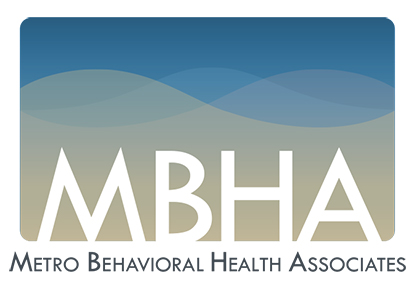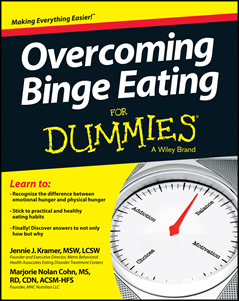Removing the Layers
While the change of seasons brings pleasure and excitement for many, for some it creates anxiety. The idea of removing layers of clothing and revealing more skin feels vulnerable for those who struggle with body image. This can lead to an upsurge of disordered behaviors around food and exercise. If this is your experience, you’ll want to read on for more insight and strategies to take care of yourself mentally, emotionally, and physically.
How Spring Affects Body Image
People wear less/lighter clothes
In colder months, it’s easy to hide under large, baggy clothing. But as temperatures rise, you face a challenging decision: prioritize your physical comfort by wearing less, or your emotional comfort by covering up. And favoring your emotional comfort by covering up usually draws unwanted attention, so the decision about what to wear can feel impossible.
More possibilities for body checking
This is a common compulsive behavior where you inspect the parts of yourself that you don’t want seen. In mirrors, shop windows, and other reflective surfaces you scan for rolls, cellulite, and other perceived ‘flaws’ with the intention to create safety. Your brain is seeking evidence that your worst fear is not reality.
More possibilities for comparison
As society begins to reveal more skin there are more opportunities to compare your body against others. Rather than moving through life embodied, you’re constantly picturing yourself being looked at. You enter spaces calculating how you measure up – better or worse than others. This mentality prevents you from being present with the people and places around you.
More photos

Photos can be particularly triggering for those who struggle with body dysmorphia. While avoidance might seem like a solution, it robs you of precious memories and solidifies your belief that your body is a problem, not our appearance-obsessed culture.
More diet talk
With summer around the corner, ‘bikini body’ dialogue gets really loud. During this season, you’ll encounter fatphobic fashion ads, weight loss transformation programs, and body commenting and shaming everywhere you go. Unfortunately, you can’t change this reality, but you can change your perspective on it. Keep reading to learn ways to navigate these seasonal body image challenges.
How to Navigate Body Image Challenges as Seasons Change
Curate Your Social Media

Social media is known for highlighting glamour and perfection. You can mute or unfollow anyone who makes you feel ‘less than’ and instead follow body neutral or body positive accounts. Intentionally diversifying your feed will change your concept of the purpose of having a body (to experience a pleasurable life!).
Dress for Comfort
Wearing clothes that are light, revealing, and/or colorful can trigger disordered behaviors around food and exercise. If you are not navigating this season with the support of a professional, it’s best to select clothing that will make you feel calm and cool in your body and your mind. Long, flowing skirts and dresses, loose shirts and shorts are always an option!
Avoid Triggers
If you know that a certain friend is appearance-obsessed, or that a dressing room visit is not within your emotional capacity, prioritize your mental/emotional wellbeing. Surround yourself with people and experiences that nourish and fulfill you mentally, emotionally, physically, and spiritually.
Have Self Compassion
Struggling with body image is a double whammy. You first criticize yourself for your appearance and second for experiencing the struggle itself. What you’re going through is understandable given the culture we live in. Give yourself some grace and let go of the expectations you have for yourself. There is possibility for change when you’re ready.
Why Warm Weather Heightens Body Image Struggles
More Time, Less Structure
Having a routine is very settling for the nervous system. We know when we’ll eat, how much sleep we’ll get, and what activities will fill our day. It’s familiar and predictable. When the days get longer, routines get interrupted by vacations and social gatherings. This opens up possibilities for overeating, overexercising, and a desire to seek control.
More Activities=More Activity
Our culture’s normalization of getting ‘summer body ready’ blurs the line between health-promoting and disordered activities. Long walks, hikes, bikerides, and swims can be great ways to connect with a friend, yourself, and nature. They can also become attempts to change the aesthetic of your body. The intention behind why you engage in those activities is everything.
Socializing Revolves Around Food

Potlucks, parties, and late-night hangouts are fun and fulfilling for some, and anxiety-inducing for others. If you approach these kinds of events with an all-or-nothing mentality, you either take the opportunity to escape your rules and feel out of control, or restrict yourself severely because you lack self-trust. Neither option allows you to engage mindfully.
Self Care Tips
Here are some strategies you can implement to navigate this season with more peace of mind.
Establish a routine
Routines are tricky because they so often get co-opted by diet culture. Shift the way you think about them from having to be rigid and perfect to flexible and easy. A non-diet routine should meet your basic needs – quality sleep and scheduled meals and snacks.
It also helps to have a sense of purpose that can be found in activities that don’t revolve around food and exercise. Consider volunteering your time to a cause that aligns with your values. Connecting with nature can also be very therapeutic. Finally, prioritizing time to relax and reflect on where you’re going and who you want to become keeps you focused on the bigger picture.
Strategize your coping tools
Different triggers require different appeasements. Sometimes you need distraction, other times support, sometimes directly dealing with uncomfortable emotions, and other times self-care. If you find yourself always turning to the same coping tool, try expanding your repertoire with some of these:
- Changing your environment
- Calling a friend
- Writing in a journal
- Setting boundaries
- Watching a funny movie
- Emailing a friend
- Listening to music that matches your emotion
- Respecting self-vulnerability
- Websurfing
- Texting a friend
- Alone time
- Going out with a friend
- Sitting with your feelings
- Going to a bookstore
- Talking with a professional
- Going for a walk
- Playing with a pet
- Unplugging from your devices
Connect with support
Here at Metro Behavioral Health Associates we have a team of experts who are here to help support your recovery from body image struggles and chronic dieting. Let this be the year you go from feeling body conscious to body confident so you can focus on what’s truly important in your life. Schedule a call to discuss your needs. We’re here to help!

Helping You Gently Find Your Balance
Ask About Our Free Consulation
Control binge eating and get on the path to recovery. This book provides trusted information, resources, tools, and activities to help you and your loved ones understand your binge eating — and gain control over it.
Certified Eating Disorder Specialist designation by the International Academy of Eating Disorder Professionals




